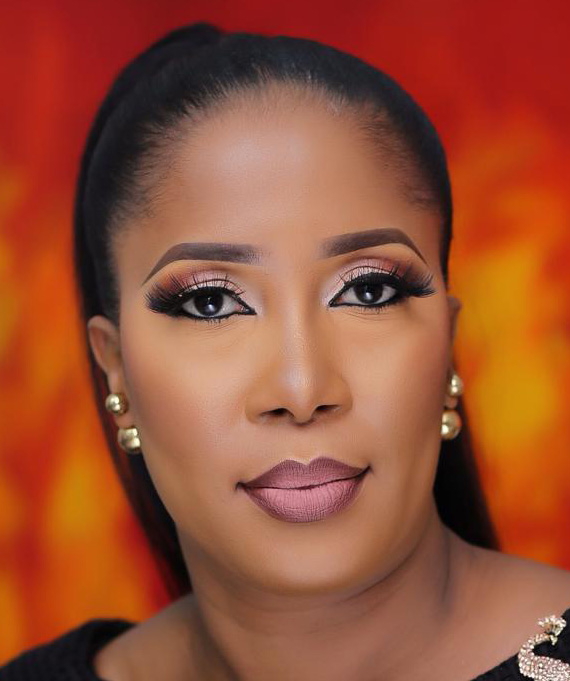“Of all creatures that can feel and think,
we women are the worst treated things alive”
― Euripides, Medea-1815
Medea, a tragic play initially performed in 431BC and later published in 1815, is unquestionably one of Euripides’ finest masterpieces. The published work, a fascinating read about fury, revenge, Greek society’s crafty politics, and the society’s unfair and unequal treatment of women, continues to fascinate readers today. Since it was first performed 2452 years ago, or, if you prefer, since it was first published 207 years ago, women today have been no different than women in Greek civilization, and in Nigeria, of all the creatures that can feel and think, women are the worst treated things alive.
Years of human evolution in almost all spheres of human development have failed to evolve patriarchy, which bears its pangs at every stage of woman development. Patriarchy happens to women individually, regardless of status, age, or educational attainment, and it happened to all Nigerian women on March 1, 2022, when the 9th assembly, in an outpour of misogyny and patriarchy, voted against five Bills in the ongoing Constitutional Amendments, rejecting 1: Special Seat for Women in the National and State Houses of Assembly, which would, in simple terms, correct the gender imbalance in the National Assembly and, without a doubt, improve the quality of legislation. 2: Expansion of the Scope of Citizenship by Registration, which would abolish constitutional discrimination that gives Nigerian males the exclusive right to confer citizenship on their foreign wives while Nigerian women cannot do so on their foreign husbands. 3: Affirmative Action for Women in Political Party Administration, which began as a mere request of 35 percent, was discussed to 15 percent, and ultimately rejected in defiance of the female voting bloc and global progressive norms. 4: Qualification to become an Indigene of a Nigerian State, which would end statelessness for women who marry outside their states when elective or appointive opportunities become available, and 5: Reserved Quota for Women in Government at the Ministerial and Commissioner Levels. All five women-centered bills were rejected by the 9th assembly.
I’d like to use the rejected bills to make a case for the Rule of Law, which was popularized by Sir Edward Coke 1552-1634, a jurist, who risked to tell King James 1 of England quoting Henry Bracton 1200-1268 that ‘Quod Rex non debet esse sub homine, sed sub Deo et Lege’ (‘the King should not be under man, but under God and the law’), thus raising the rule of law’s dominance over all. In his book “Introduction to the Law of Constitution (1885)”, A.V Dicey broadened the Rule of Law concept to include three principles: absolute supremacy of law, equality before the law, and the predominance of legal spirit. The fundamental premise of the Rule of Law is that everyone must be treated equally before the law, which must be implemented fairly and justly to all citizens and institutions within a state’s or country’s geographical sovereignty. This, without equivocation, means that laws must not discriminate on any grounds, and that discriminatory legislation is incompatible with the Rule of Law’s core principles.
Advertisement
In Nigeria, the Rule of Law is a singsong, from the political class, which claims to uphold it, to the legislature, which claims to make laws on the subject, to the executive, which claims to put these laws into effect for the common good, and the judiciary, which falls short of judicial activism when confronted with it. While the singer may find the music melodious, the reality for the audience is far from that. The unvarnished truth is that the rule of law is a myth, different laws apply to men and women of Nigerian descent, the country functions on unjust laws that discriminate against women and children, and patriarchy reigns Supreme.
Nigerian laws are written by men for men, to subjugate, dominate, victimize, and deny women agency and autonomy. Section 26 of the 1999 constitution (as amended), which prevents women from conferring citizenship on their foreign spouses, unlike their male counterparts, is one of the five bills rejected. Section 42 of the Constitution guarantees the right to freedom from sexism, but section 26 of the same Constitution remains in full bloom. Except where the father is deceased or of unsound mind, Section 18 of the Marriage Act requires written approval from the father for the intended, in which case the consent of the mother is regarded rather than the equal division of power between both parents. According to sections 353 and 360 of the Criminal Code, an unlawful and indecent assault on a male is a felony punishable by three years in jail, whereas an unlawful and indecent assault on a woman is a misdemeanour punishable by two years in prison.
Being married equals consent to be raped at will, according to section 357 of the same statute, applicable in southern Nigeria, and spousal rape in a continuing marriage is legal under section 282 of the Penal Code, which applies in the North. Husbands are allowed to batter their wives under Section 55 of the Penal Code, with subsection 10 stating that it is not an offence for a husband to inflict harm on his wife to correct her, as long as it is not grievous, contrary to section 34 of the Constitution which guarantees right to human dignity.
Advertisement
Nigerian Drug Law Enforcement Agency (NDLEA) Act in Article 5(1) and (2) NDLEA Order, 2002, female applicants must be unmarried at the time of enrollment and remain so for at least two years after enlistment, and must apply to the Chairman/Chief Executive for permission, stating details of the intended husband, when they decide to marry. Married women are prohibited from enlisting in the Nigerian police force under Section 127 of the Police Act, and when an unmarried woman falls pregnant, she will be expelled from the force and can only be reinstated by the Inspector General of Police’s compassion, and under Regulation 124 of the Police Act, a woman police officer who wishes to marry must first apply in writing to the commissioner of police for approval. A policeman does not need such consent, and there is no penalty provided for him who goes on to impregnate women both inside and outside the force, underscoring Meghan MacLean Weir’s quote that “It’s men who trust they will suffer no consequences for their actions, while women suffer no matter what they do.”
The list of laws that discriminate against women is inexhaustible, from the Evidence Act to the Value Added Tax Act to the Labour Act, all of which are cloaked in paternalistic sexism. The 9th assembly deliberately rejects the lived experiences of women under these unjust laws, solely to advance patriarchal interests, protect patriarchal privileges, and deny women the opportunity to improve their condition through legislation.
The Gender and Equal Opportunity Bill, which was first introduced in 2016 and seeks to guarantee women’s rights to equal opportunities in the workplace, equal rights to inheritance for both male and female children, equal rights for women in marriage and divorce, equal access to education, property/land ownership, and inheritance, among other things, was rejected again in 2021 with male lawmakers saying that from Islamic and socio-cultural standpoints, equating possibilities for women and men infringes on the provisions of the Quran and also the Bible… only by removing the word “equal” could the bill pass.” It’s easier to envision such mental depravity than to experience it. How can the fallacious tune of the Rule of Law be melodic when it solely serenades the men in society with this slew of unjust laws? Where is the rule of law when men and women are not equal before the law? Where is the rule of law when the yardstick for equality, equity, and justice are tilted against women, and the National Legislature, especially this 9th assembly, professes to pass legislation in accordance with the rule of law? What an evil charade!
In Nigeria, there is no legislation dedicated entirely to the advancement of women’s issues; at best, there are laws that target people in general but do not address the issues that women have identified as vital to them. Even with general-purpose legislation, religious-socio-cultural patriarchy systems still exist, making it difficult for women to enforce even the most basic rights. Victims of rape who seek restitution from institutions are first shamed, blamed, and penalized by society before justice is served, if justice is served at all. Every ill is condoned against women, even as breadwinners, more like bread bringers, women do not win; incest is covered up by family structures, pedophilia is dressed up in religious and cultural garb, with a constitutional flair, and domestic abuse is suppressed until a woman’s death. The rule of man, not the rule of law, governs Nigeria.
Advertisement
The decadence of men’s imagination and behavior is always focused on women and girls, and this is why representation matters. Women know more about women’s issues than men, which is why special seats in parliament, reserved quotas in appointive positions, and affirmative action have been proposed to assure the robustness and diversity that comes with an informed perspective but the apostles of patriarchy reject progression at every turn. The rule of law and patriarchy cannot coexist. There will always be a point of conflict and divergence between those who want equality before the law and those who seek subjection through the law. Legislative duty and discretion must not be rooted in discrimination; two sets of laws for men and women cannot exist in the same jurisdiction; therefore, contentions must always be resolved according to the rule of law. This, not performative utterances, is what it means to make law governed by the rule of law.
With the rejection of the Bills, it begs to ask, where do we as women go from here? Forward, I dare say. All strategies are on the table, and the advocacy must continue. Those in positions of demand, will demand, and those who can appeal to their egos will do so. Political wives must leverage the patriarchy and use their spouse’s political influence, I’m not assuming that some of these husbands aren’t apostles themselves, and I’m not assuming that some women aren’t gatekeepers of patriarchy, but those of us who have achieved emancipation must find a way.
I have refrained from calling on President Muhammadu Buhari and his party, the All Progressives Congress (APC), which controls both houses of the National Assembly, to do the right thing by the country’s women for obvious reasons: what motivation does President Buhari have to influence his members to do the right thing when his highest expectations of women are copulation and culinary skills? Nevertheless, the first lady, like all APC wives, must try.
Citizens also must publicly mock these legislators; the inquiry should be, “How did you vote on the bill that concerns me?” and then let the universe direct the conversation from there. Men who profess to support women’s rights must do so in its entirety and be unequivocal in their stance. They must be seen as active, consistent, and unashamed advocates; window-dressing is not an acceptable standard. The speaker’s attempt at courage and showmanship in asking his colleagues to reconsider the role of women in political ascension falls short of persuasion; he scores no point for valiance. Commendations will not accost the speaker until all the bills are represented and re-voted with evidence of success; he should use the tactics in the toolbox by which he and his colleagues have gotten unjust bills passed into law.
Advertisement
As representatives of the people, not least women, the legislature bears the burden of ensuring citizens’ uniformity, equality, fairness, and justice. As with all previous assemblies, if women conclude that the 9th assembly hates women, it will not be unfounded; adopting patriarchy, whether intentionally or inadvertently, destroys representative purpose and expectations. Centering patriarchy ahead of the rule of law in legislative proceedings and outcomes is unjust; the law and national institutions cannot support patriarchal cultural and religious notions that deny women equality before the law. Patriarchy established and enforced by legislation serves no progressive goal for our society; citizens’ refuge, the law, must henceforth cease to be a modern-day tool legalizing, protecting, and entrenching gender disparity.
Twitter: @FlorenceOzor
Advertisement
Views expressed by contributors are strictly personal and not of TheCable.
Add a comment







